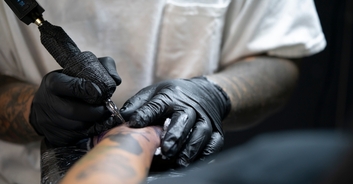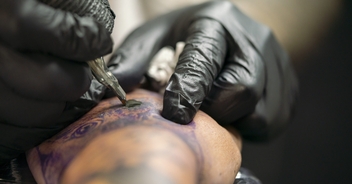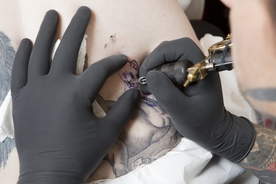A study has found that people with tattoos are more likely than those without tattoos to act "impulsively" and "recklessly", the Times reports.
More than 1,000 people took part in the study, which was conducted by economists at Canada's McMaster University and published by the Journal of Economic Behavior and Organization.
Indeed, the participants as a whole were made up of 781 people without tattoos and 255 with tattoos, including 68 people whose tats could still be seen when they were fully clothed.
Check out this incredible optical illusion tattoo:The purpose of the survey was to discover why tattoos have risen in popularity - according to the Times - when employers and society as a whole tend to discriminate against people with ink.
In their words, they wanted to discover why anyone would willingly "affix a visible stigma to one's identity".
"I'm an economist. From an economic perspective this decision to have a tattoo is puzzling," Bradley Ruffle, from McMaster University told the Times. "Tattoos are about making some kind of statement. But why not just dye your hair or get a personalised T-shirt you can remove?"
Check out this video of a man getting the tattoo on his face removed:As part of the study, the economists included a test that would offer a larger amount of money for the contestant, if they waited longer to cash out.
The participants without any ink were aware earlier in the activity of which strategy they should use to secure the largest amount, according to the Times. On the other hand, those with tattoos answered the question impulsively.
Ruffle told the Times that while he hopes the findings of the study will help inform people's decisions as to whether or not getting inked is a good idea, this increase in impulsiveness was not always a negative thing.
"Sometimes it’s good to make decisions fast. If you’re a professional basketball player and you need to decide whether to shoot or pass, you don’t want someone who stands there and deliberates," professor Ruffle added.





